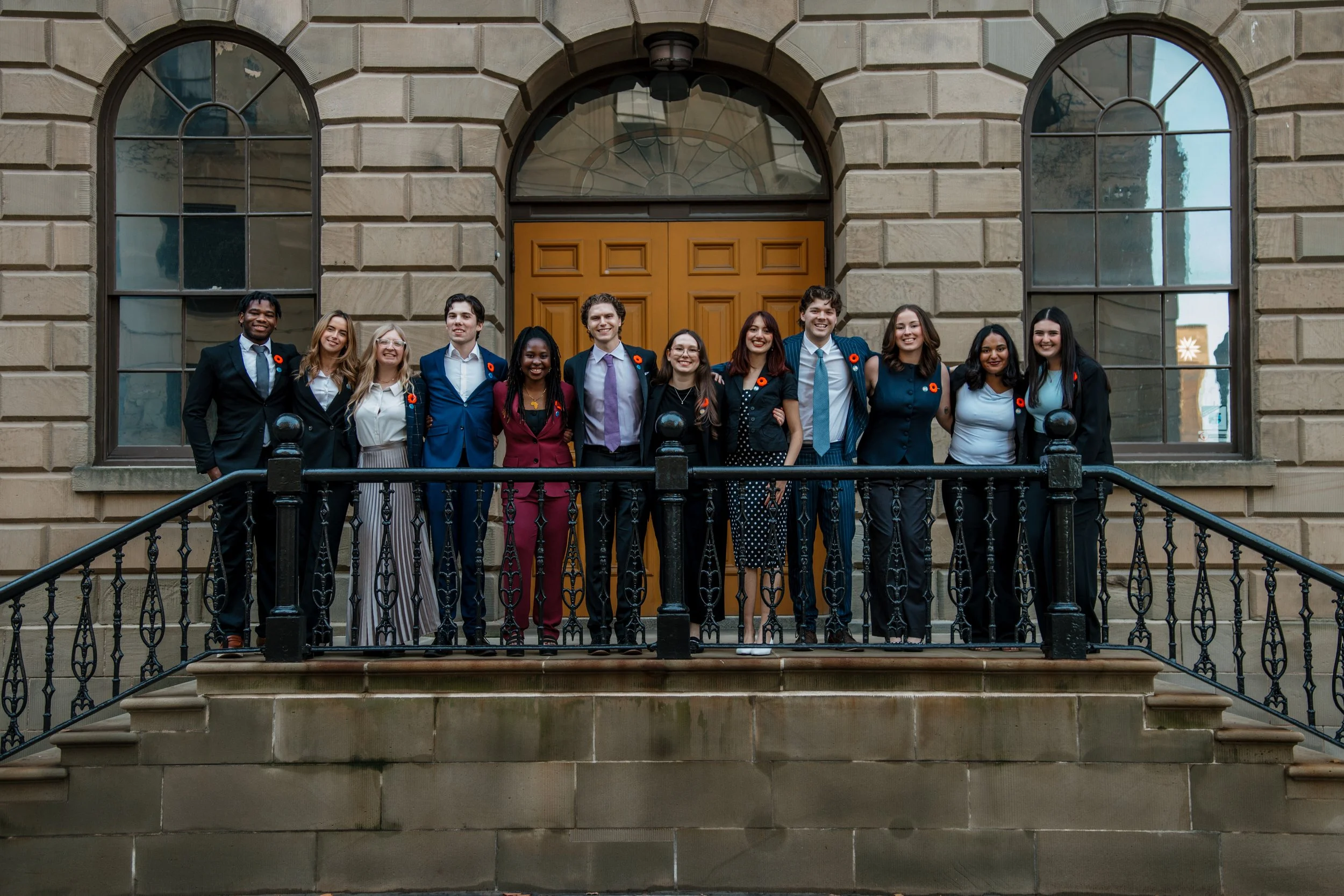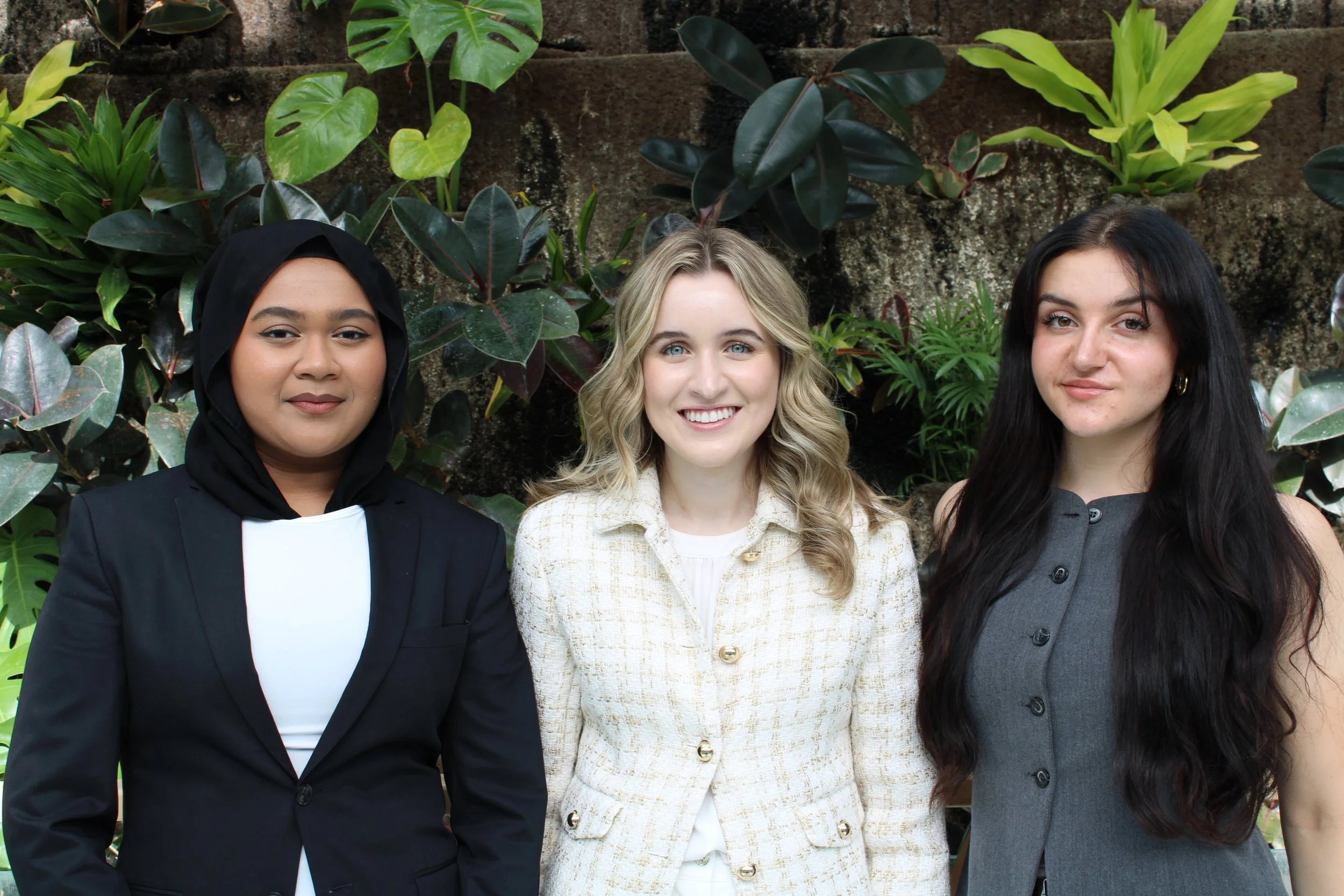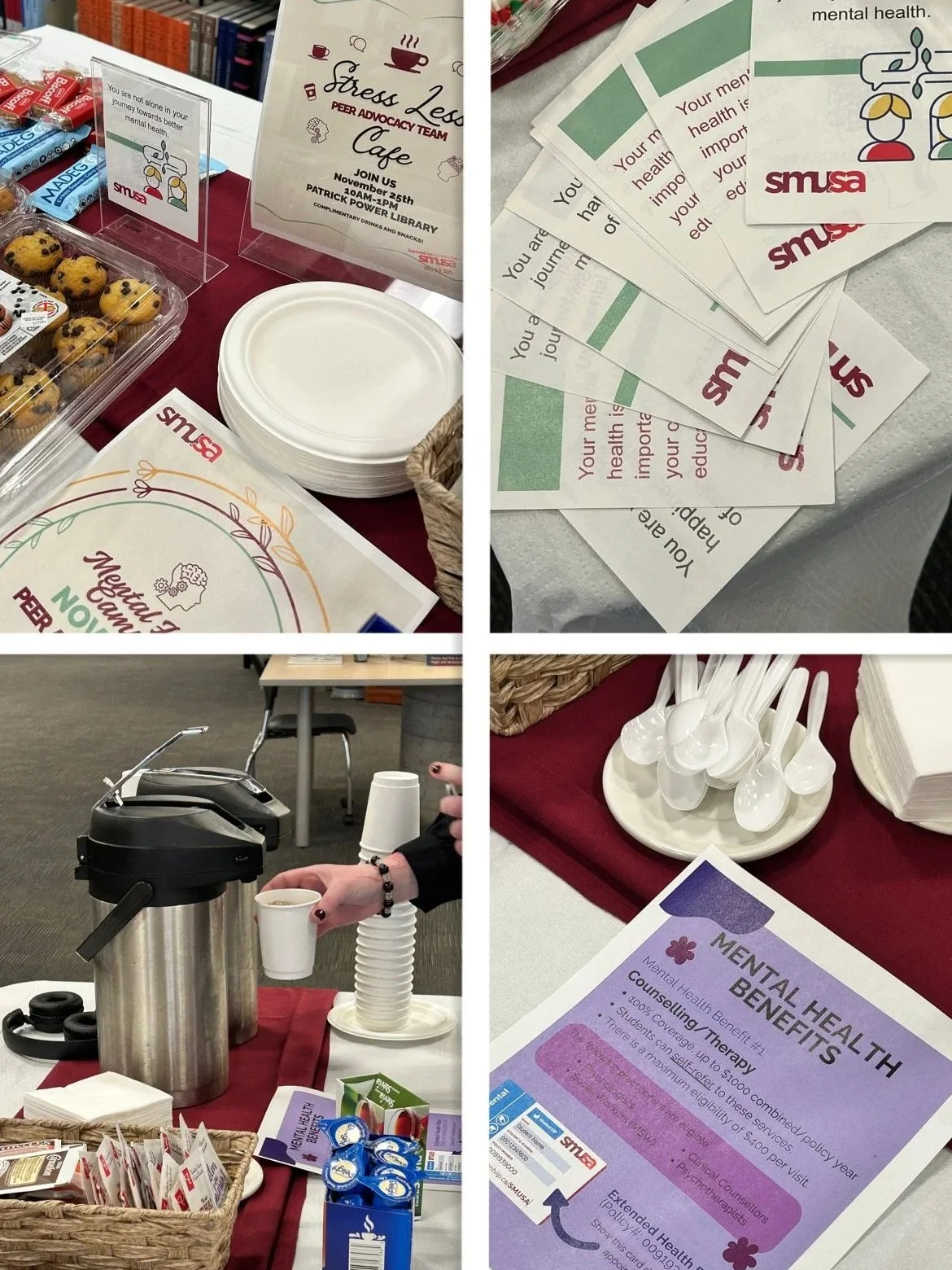
ADVOCACY
Fighting for Students.
In addition to offering free and confidential support, advice, and representation at the university level, we represent and advance key areas of interest of Saint Mary’s students in cooperation with our two external advocacy groups; Students Nova Scotia (SNS) and the Canadian Alliance of Student Associations (CASA). This page is another way for us at SMUSA to hear how Saint Mary’s students perceive student issues on a rotating basis so that we can best advocate for YOU. While our advocacy priorities may change throughout the year, our mission will always be to make education more affordable, accessible, innovative, and student-driven.
Simone Boudreau – Campaign Manager
Natasha Beuree-Edwards – Policy & Research Analyst
Nabeeha Aftab – Communications & Outreach Lead
OFFICE HOURS
Tuesday - Simone (11:30 AM - 3:30 PM)
Friday - Nabeeha (8:00 AM - 1:00 PM)
Nabeeha (9:00 AM - 2:00 PM)
Peer Advocacy Team
The SMUSA Peer Advocacy Team is an initiative dedicated to amplifying the student's voice and bridging the gap between students and the organizations that serve them. Our goal is to advocate for student needs, foster meaningful dialogue, and campaign for important causes that impact our student community.
Through monthly campaigns, outreach efforts, and collaborations with internal and external partners, the Peer Advocacy Team strives to create spaces where student concerns are heard, represented, and acted upon. Whether it’s raising awareness about mental health, employment challenges, or social equity, we are here to ensure that every student feels supported, empowered, and part of a stronger, more inclusive Saint Mary’s community.






